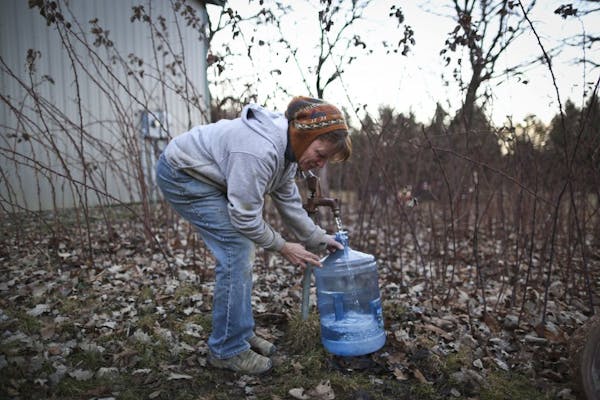Counterpoint
The recent editorial on farm practices emphasized thats "agricultural practices need not be abusive to animals" with a hint of interest in food security ("Farm practices face a critical test in U.S.," Dec. 22).
While there were many excellent points made, there was no mention of the food production foundation for us humans or producing food for the animals that provide various other types of food for us.
Food and grain production in agriculture are very highly dependent on a thin layer of soil that supports most life depends. The soil is the fundamental foundation of our life and our economy. Our soils, water, air and sun are the major resources that sustain our food production. We are the stewards of those resources and must manage soil to maintain sustainable production. This was a major challenge in this past drought year and in areas of other major climate events. Soil erosion continues to be major threat to the sustainability of agriculture all around the world and especially in the United States as Ken Burns reminded us with his documentary, "The Dust Bowl."We must understand that soil erosion is a degrading process that happens slowly and is only obvious under extreme conditions. However, in geologic time, soil erosion within a generation can exceed the rate of soil formation. This is challenging when we understand that it takes more than 1000 years to generate 1 inch of new soil. Farmers have rights and responsibilities, in addition to other challenges, to protect the limited productive land that serves the expanding global population. "What's at stake is who decides agricultural practice?" is a logical question and more of a social than a technical issue. Anyone in business knows that the "customer is always right." Most of the Americans are about three generations away from farm food production; that is, traditional conventional agriculture that leads to soil erosion and degradation. American interest in agricultural methods is long overdue and needs to be fueled by objective educational programs. One such program is the understanding of conservation agriculture as a more sustainable way of agricultural production. The primary emphasis is on soil and water conservation through minimum soil disturbance, crop residue protection of the soil surface, and the utilization of diverse cropping rotations and cover crops. Unfortunately, there's a "cultural momentum" that exists for conventional agriculture that will be difficult to change. It require major social change by producers and consumers. But continued interest in long-term food security will make conservation agriculture more of a reality. ----------------- Before retiring, Don Reicosky served as a soil scientist with the U.S. Department of Agriculture and the Agriculture Research Service. In 2009, he received the Soil Science Distinguished Service Award. He lives in Morris, Minn.

The little park that could … be better
Climate change looms large this election year
For this Minnesota legislator, action targeting child abuse is intensely personal


